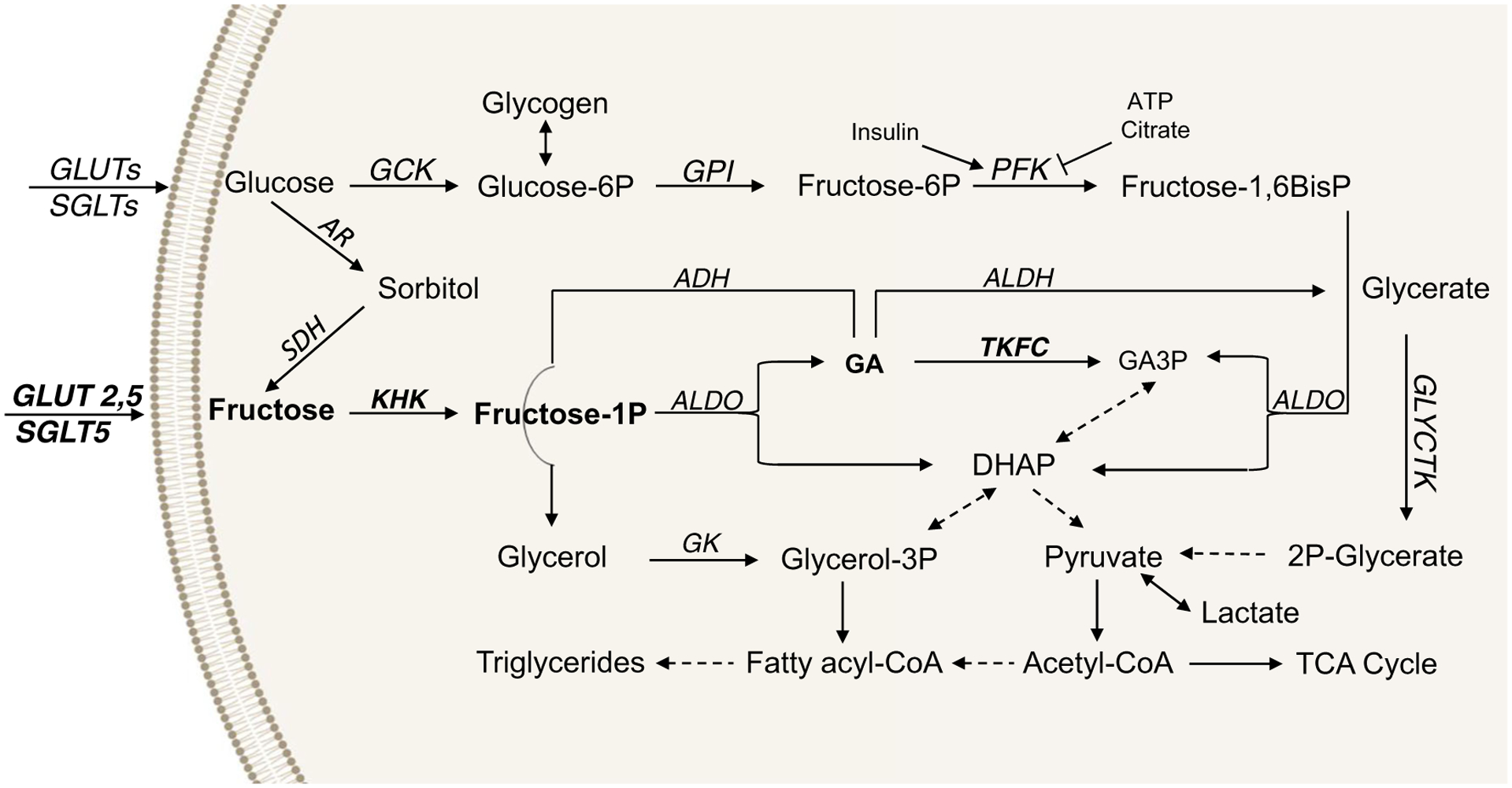Fig. 1.

Pathways of fructose and glucose metabolism. Fructose translocation across the cellular membrane is primarily mediated by glucose transporters (GLUT2, GLUT5), as well as sodium and glucose cotransporters, such as SGLT5. Intracellular fructose metabolism is catalyzed by ketohexokinase (KHK), which converts fructose to fructose 1-phosphate. This reaction is considered to be the rate-limiting step in fructose catabolism. The aldolase (aldo) family of enzymes uses fructose 1-phosphate to produce glyceraldehyde (GA) and DHAP, a common intermediate with glycolysis, which is primarily converted into pyruvate. Pyruvate can then be metabolized to lactate or acetyl-CoA, which is a substrate for fatty acid and sterol synthesis or for incorporation into the TCA cycle. The GA produced from fructose 1-phosphate is more specifically associated with fructose as compared to glucose catabolism and has three fates: (1) it is converted to glycerol via alcohol dehydrogenase (ADH) to serve as a backbone for triglyceride synthesis; (2) it produces glycerate via aldehyde dehydrogenase (ALDH), which can contribute to the production of pyruvate via glycerate kinase (GLYCTK); or (3) it produces GA3P via triose kinase (TKFC). Induction of TKFC is another specific step of fructose metabolism. By converging onto common intermediates, fructose can be converted to glucose and thus support glycogen synthesis. On the other hand, glucose can be endogenously converted to fructose via the polyol pathway. First, glucose is reduced by aldose reductase (AR) to sorbitol, which is subsequently oxidized by sorbitol dehydrogenase (SDH) to fructose. Although the metabolism of glucose and that of fructose converge onto common metabolites, the flux through the glycolytic and fructolytic pathways is starkly different. Glycolysis is highly regulated at the level of phosphofructokinase (PFK) by insulin, ATP, and citrate. Conversely, fructose metabolism is 10 times faster than that of glucose and is not regulated by its end products or by insulin.
